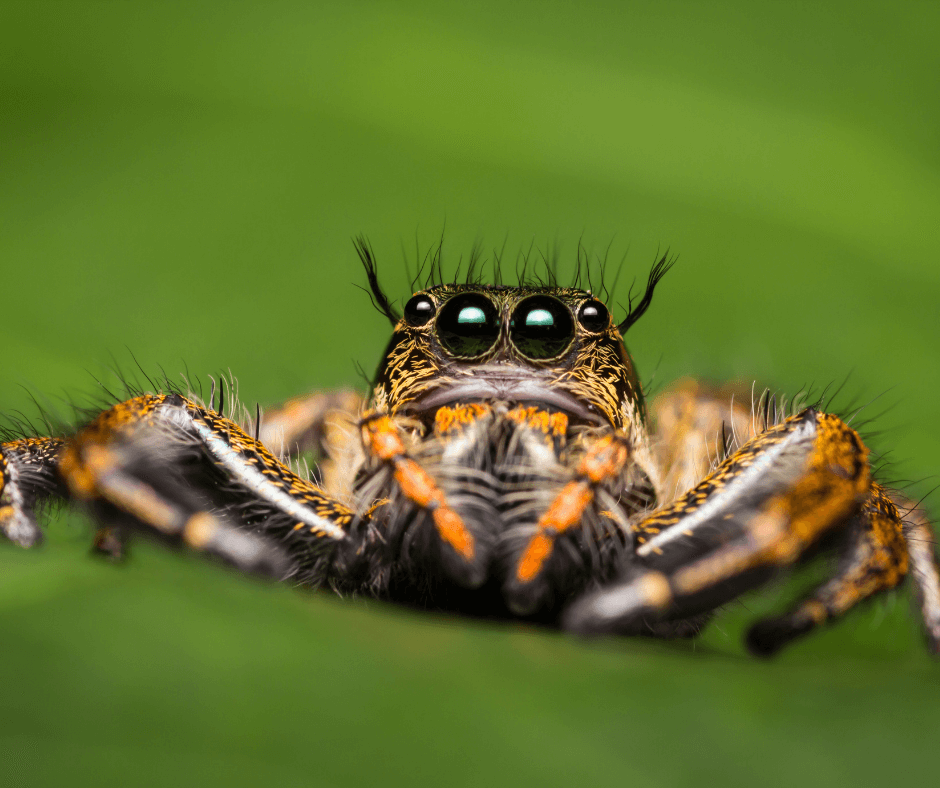Jumping Spider
Platycryptus undatus
Jumping Spider Stats
Color: Various colors, often black, brown, or gray with iridescent markings
Size: Adults are typically 0.1 - 0.8 inches in length
Shape: Compact, stout body with short legs and large front eyes
What is a Jumping Spiders?
Jumping spiders are small, agile spiders known for their excellent vision and jumping abilities. They are active hunters that rely on their jumping skills to catch prey. These spiders are curious and often seem to be watching their surroundings.

Where do Jumping Spiders live?
Jumping spiders live in a variety of habitats, including gardens, forests, and inside homes. They are commonly found on plants, walls, and windowsills where they hunt for insects. These spiders prefer sunny areas where they can easily spot their prey.
What do Jumping Spiders eat?
Jumping spiders eat a variety of small insects. Their diet includes flies, ants, moths, and other tiny bugs. They hunt by stalking their prey and then leaping to catch it, using their strong legs and excellent vision.
How do Jumping Spiders behave?
Jumping spiders are known for their jumping ability and curious nature. They do not build webs to catch prey but instead actively hunt during the day. These spiders use their large front eyes to spot and track their prey before jumping to capture it.
How do Jumping Spiders reproduce?
The female jumping spider lays eggs in a silken sac, which she often attaches to a hidden spot. She guards the egg sac until the spiderlings hatch. The young spiders disperse and begin hunting on their own soon after hatching.
How can you control Jumping Spiders?
Jumping spiders are beneficial predators that help control pest insect populations. If you need to remove them, carefully relocate the spider to a more suitable outdoor location. Keeping your home and garden clean can help manage their presence.
How do Jumping Spiders impact humans?
Jumping spiders are not harmful to humans. They rarely bite, and their venom is not dangerous to humans. These spiders are beneficial by reducing the number of pest insects in homes and gardens. Their unique jumping behavior and helpful nature make them an interesting and valuable part of the ecosystem.
Explore More Spiders
Our Pest Control Service Areas
Let us help you eliminate these pests!
We treat your home or office as if it were our own!



